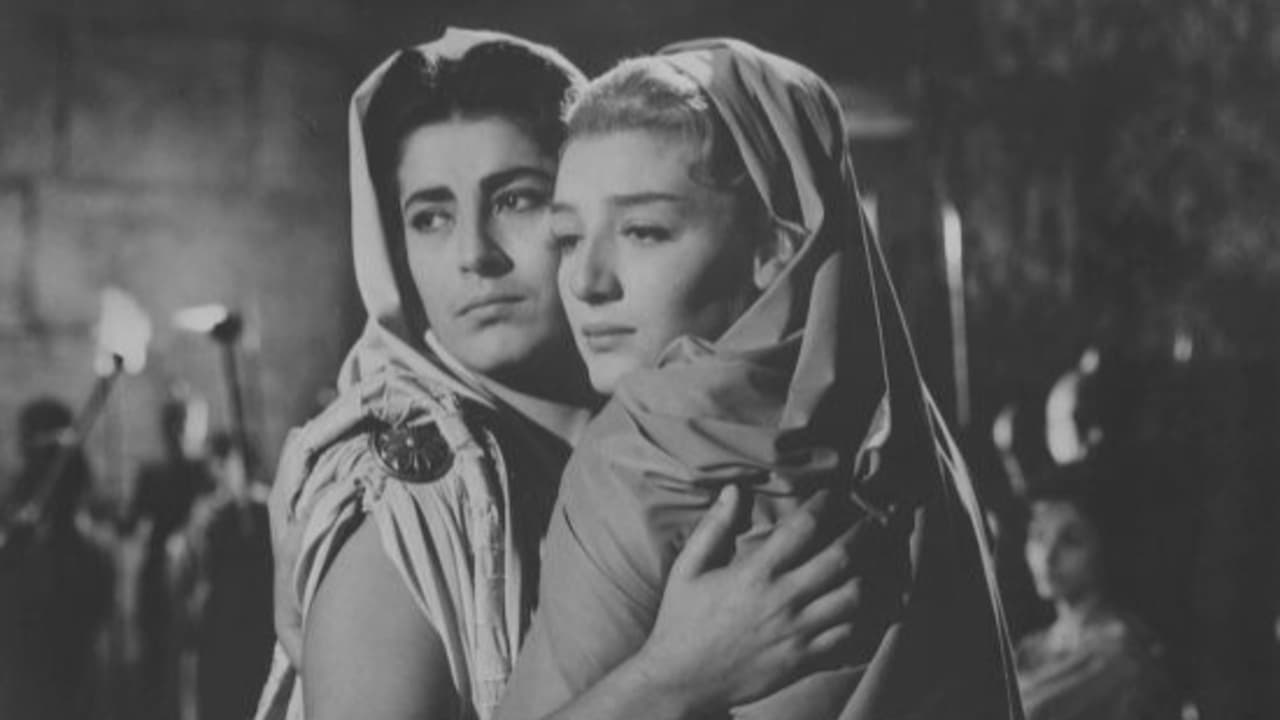

Very disappointed :(
... View Moreone of my absolute favorites!
... View MoreGood start, but then it gets ruined
... View MoreI gave this film a 9 out of 10, because it was exactly what I expected it to be.
... View MoreAt the beginning of the movie, Isme exhibits self-preservation when she does not want to help Antigone bury their brother, Polynieces. She values her own life above honorably burying her dead kin. Their other brother, Eteocles, deserved an honorable burial according to the king since he was not a traitor. The king decrees that Polnieces be left to the wild animals to devour because the gods willed it. Antigone is not worried about preserving her own life because she feels like she has a higher calling to respect the dead, especially when it is your own family. She knows by burying Polynieces she could be ordered to be put to death by the king who is also her uncle. However, she feels there is an unwritten law given by the gods which is greater than his law that the dead should be buried. The king is in a position to where he is supposed to govern the city by its laws which is not to bury the enemy near the city. Obviously, he is valuing the law over his family because Isme, Polynieces, Eteocles, and Antigone are his nieces and nephews.The story is very comparable to the trial of Socrates. Socrates felt like his philosophizing was a service to the gods. The city of Athens accused him of creating new gods and corrupting the minds of the youth. He is placed on trial and sentenced to death because of the charge.Socrates, like Antigone, chose death over not obeying the laws of the city because they valued their own beliefs. In both stories, there could have possibly been room for compromise. It was noble that the King and the city of Athens were trying to enforce the laws of the land. However, it appeared they did not even consider the views of Socrates or Antigone. In fact, the King regrets his decision to sentence Antigone to death after she has already died. It is not clear whether the city of Athens deemed their decision appropriate after Socrates died.Justice is when there is harmony between society and individuals. In the story of Antigone, it seemed like the death of Antigone caused more chaos than harmony. By the time the King realizes he had been stubborn in the sentencing, his son, wife, and niece have committed suicide. It seems it would have been more just to give Polynieces some type of burial. If the King had decided to bury him, so much of his family would not have died. Like Antigone, Socrates was no longer living harmoniously with Athens because he was convicted of disobeying their laws. Socrates never made new gods; he just had different views of the gods Athens served. It seems Athens framed him and caused chaos by trying him. It was the city of Athens against Socrates at his trial. Because the city deemed his actions unjust, he was killed even though he did not technically disobey the law.
... View MoreIn the film Antigone, the debate on what is just and unjust is presented. This theme is of course a very popular topic in Greek literature. The Greek philosopher, Socrates, questioned many times what to follow based on what is considered just. The film depicts the character Antigone going against King Creon's decree by doing what she considers just, but ultimately, she died standing up for her cause. Creon, who is the current king to the city of Thebes, has recently taken the throne after the exile and death of the previous king, Oedipus, and the death of his two sons, Polyneices and Eteocles. After Oedipus left Thebes, his two sons were left to switch back and forth being king of the city. The first brother to have a turn was Eteocles. When the time came for his reign to end, he of course, did not want to give up his noble position. So based on his brother's inability to step down, Polyneices decide to revolt and started a war against the city of Thebes. Ultimately, both brothers were killed in the battle. After their deaths, Creon took the throne, and since Polyneices was the one who started the war, Creon deemed him a traitor and Eteocles a hero for defending the city. For Creon's first edict as king, he declares that Eteocles will receive a rightful burial, but Polyneices' body will be left in the desert unburied since he was a traitor and does not deserve a rightful burial. Antigone, who is one of Polyneices and Eteocles' sisters, does not agree with this edict, and viewers too might have conflicting views on this edict. Antigone is faced with the tough decision to either follow the unwritten laws of the gods that say to bury the body or the written laws of the city that say to follow the king's command. Antigone struggles with her decision, but since she sees Polyneices as her brother and not as a traitor, she rebels against the laws of the city and follows what the gods' command. Similarly, in the book Apology, the author Plato transcribes Socrates' speech of defending himself against living a philosophical life. Socrates too had to make a similar decision like Antigone to either follow the god that told Socrates to live his philosophical life, or follow the city's command of him stopping his philosophical life. Socrates, like Antigone, chose to follow the god because he thought it was more just to follow the god than to follow the city's laws in that situation. Due to them both rebelling against their cities' laws, Socrates and Antigone were both sentenced to death. Creon did not want her blood on his hands, so he left the decision up to Antigone to either live or die. Antigone eventually killed herself since she was put in a cave to die. She knew that she was ultimately going to be judged by the gods, so in her mind since she followed the gods' commands, she exemplified justice and had nothing to lose by ending her life for her just cause. At this point in the film, viewers may feel bad for Antigone's death since she was only trying to do the right thing, or they could agree that she broke the laws, and therefore, her death was justified. Socrates too decided to face his death instead of escaping. However, in the book Crito, Socrates reasons for facing his punishment were because the laws of the city told him to do so not the god. Because of this change in who to follow, one could argue that it seems as if it is just to follow both the laws of the city and the gods, but it may depend on the situation and person. So as a viewer of the film Antigone; however, we see that it is more just to follow the gods, because in the end they stopped hearing the prayers of the city and turned against Thebes because of King Creon's actions.
... View MoreAntigone is faced with an ethical dilemma at the beginning of the tragedy when King Creon ordered that one of her brothers, Eteocles, would be given the burial of a hero. Her other brother, Polynices, was to be left outside of the city unburied for wild animals to pick apart. Anyone who disobeyed this decree would be put to death. Antigone is forced to make a life-altering decision: to risk death and bury her brother or to go against the will of the gods. Antigone decides to go against the will of the King and bury her brother. No one knows that it was her who went against the king. After the king has his men uncover the body, the guards of the body catch her burying him a second time. Was her action justified? In her defense, she proclaims that the gods order that he must be buried. In Euthyphro, however, it was determined that an action is not just simply because the gods command it. Furthermore, there was no need to bury him a second time, especially in broad daylight. This shows that it was no longer about honoring her brother or the gods; she wanted to spite the king.After her decision, King Creon is forced into an equally challenging ethical dilemma. He must decide to follow through with his word and sentence her to death or to have mercy on her. Despite his son and other's belief that it was a noble deed, the king believes that his power and authority will be jeopardized if he lets her live. He orders that Antigone be sealed in a tomb and left for dead. King Creon changes his mind, but it is too late. Antigone hung herself in her tomb. This triggers a causal chain, in which his son and his wife also commit suicide. He is left alone to suffer the consequences of his decision. The inflexibility of both parties caused the tragedy to occur.
... View MoreThis film, seen in my youth, has etched itself indelibly into my psyche. Achingly bleak, this story of a sister's love is portrayed in a classical style, with Irene Pappas powerfully projecting the character of the title role. This is a worthwhile way to use your valuable time.
... View More